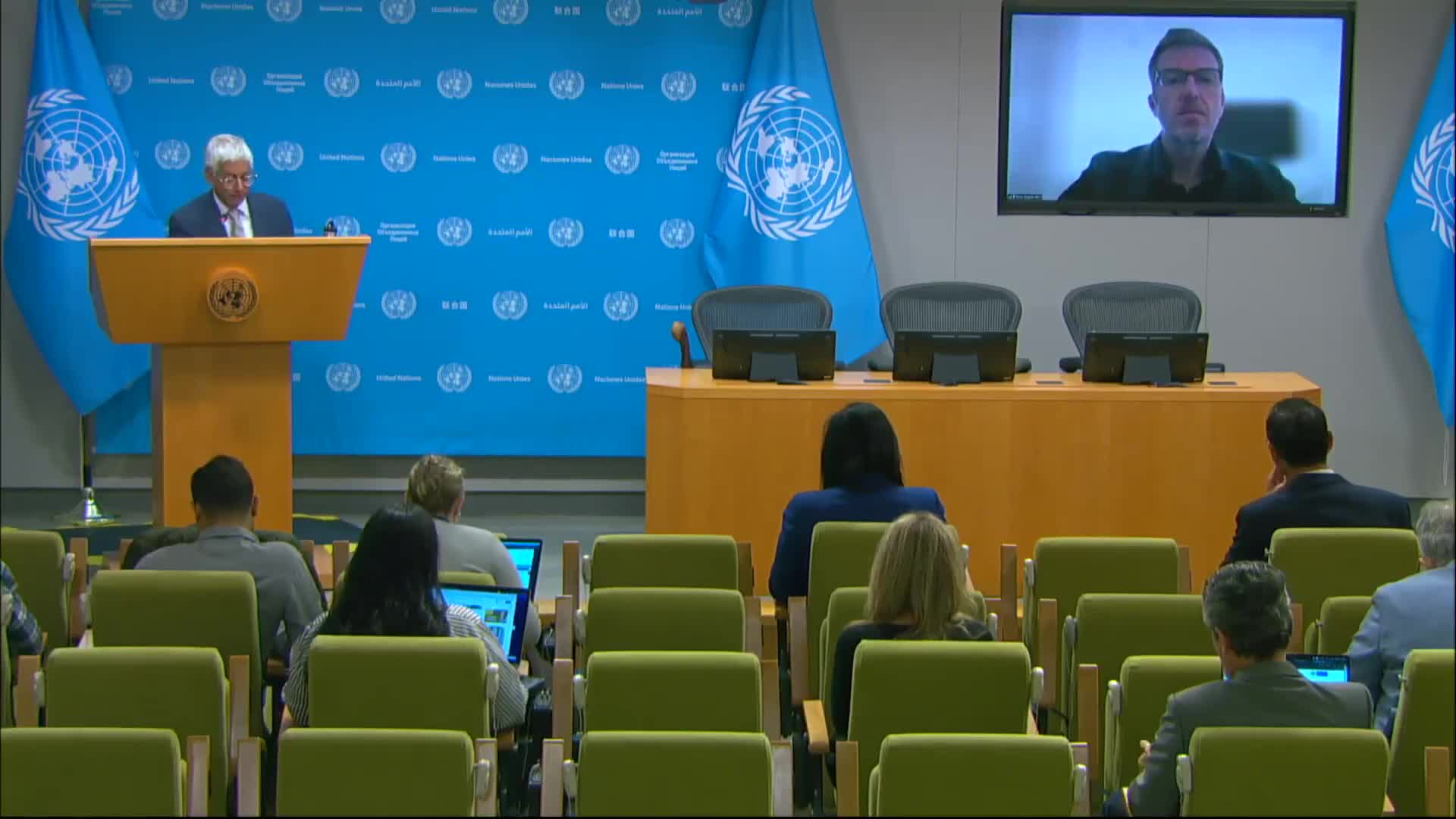WFP appeals for $74 million after Hurricane Melissa, plans food, cash and logistics support across Jamaica, Cuba and Haiti
Get AI-powered insights, summaries, and transcripts
Subscribe
Summary
The U.N. World Food Programme on Thursday outlined emergency food, cash and logistics operations after Hurricane Melissa and appealed for roughly $74,000,000 to support affected populations across the Caribbean.
The U.N. World Food Programme on Thursday outlined emergency food, cash and logistics operations after Hurricane Melissa and appealed for roughly $74,000,000 to support affected populations across the Caribbean.
"Last week Hurricane Melissa wreaked havoc across The Caribbean, devastating [the] agricultural heartland of Jamaica, cutting off communities in Cuba and causing flooding across Haiti," Brian Bogart, WFP country director for the Multi-country Caribbean office, said in a virtual briefing. "It is our commitment to meeting urgent food needs as requested by national authorities and our international partners."
The agency described a mix of immediate and medium-term measures. In Jamaica, WFP said it airlifted 2,000 food kits from a regional logistics hub in Barbados to Kingston and is standing up a commodity pipeline from local markets to deliver assistance by air and road. Bogart said WFP “plans to assist up to 200,000 people across the country with food assistance and transition to cash as and when markets begin to recover.” A French Navy vessel carrying relief items arrived in Kingston’s harbor and a Dutch vessel was expected to offload supplies, he said.
In Cuba, Etienne Laband, WFP country director in Cuba, said Melissa made landfall in Santiago de Cuba as a Category 3 storm, leaving widespread flooding, power outages and heavy damage to crops, buildings, hospitals and schools. "Having WFP staff on the ground was critical to ensure fast and effective response," Laband said, crediting preparedness work and a recently adopted anticipatory action framework for shortening response times.
Laband said WFP and government prepositioned supplies "to support 2,075 people for up to 60 days," and that distributions had already reached about 180,000 people in protection centers across the provinces. "Funding permitting, we plan to assist 900,000 people for 3 months and half of those in need of assistance for an additional 3 months," he said. He added that the United Nations in Cuba would launch a response plan approved by the government that appeals for roughly $74,000,000 to assist around 1 million people affected over 12 months.
Laband also briefed on Haiti, saying Melissa has aggravated an already complex humanitarian situation. He told the briefing that, even before Melissa, about one in two Haitians were already severely food insecure. He said anticipatory payments of about $900,000 had been provided to approximately 50,000 people, and that large-scale messaging and targeting efforts had reached thousands.
"Were calling for $74,000,000 to deliver life-saving assistance to up to 1,100,000 people in The Caribbean and coordinate emergency logistics and data communications," Laband said, noting that recovery "is a marathon, not a sprint."
Reporters asked operational questions. Pamela Falk of U.S. News & World Report asked whether a reported $3 million U.S. contribution to Cuba had been accepted and whether WFP had access to the Guantanamo Bay Naval Base; Laband said he could not confirm the bilateral status of that offer and that WFP does not have access to the base. Journalists also asked about drone deliveries in Haiti; Brian Bogart said WFP has drone capacity but did not believe drones had been used to deliver physical assistance in Haiti and offered to confirm and follow up.
Bogart and Laband thanked governments, bilateral donors and partners for contributions and assistance; the briefing noted support or pre-positioned stocks from Canada, the European Union, the United States (air transport), and a forthcoming European Civil Protection operation to support an air bridge. Both directors emphasized coordination with national authorities and humanitarian partners.
WFP provided operational targets and figures but emphasized these remain subject to change pending ongoing assessments. Bogart said the 200,000-person target in Jamaica was a current planning figure that could be adjusted as assessments return. Laband repeatedly framed the response as contingent on funding and logistics capacity.
Questions about specific bilateral offers, operational access and final targeting remained open; WFP committed to follow up with reporters for confirmations on drone use and the status of bilateral contributions.
